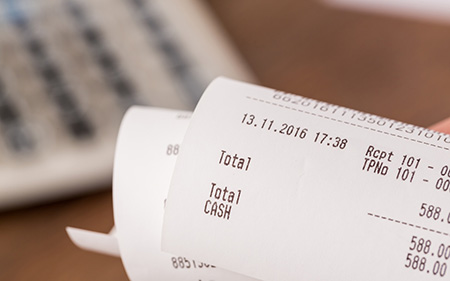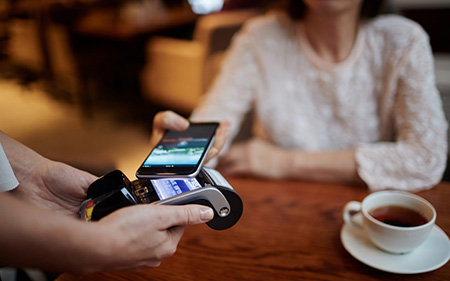The 10 budgeting mistakes to avoid
We all want to make the most of our money, and budgeting is a great way to help you keep track of your spending and identify some of the areas where you can make key savings. However, outlining a plan for cutting costs, and sticking to it, can be harder than you think. Here are some of the most common pitfalls to avoid if you want to spend less and save more.

1. Underestimating the importance of accuracy
Tracking how much you spend is vital when you're budgeting, and this means taking note of all your expenditure. You will need to gain a true reflection of your spending in order to set budgeting goals, as well as accurately monitor how much you're spending to ensure you stay on track.
Collecting receipts and recording all purchases in an Excel spreadsheet is a great place to start, but makes sure you record exact amounts, no matter how small and insignificant they may seem, rather than estimating or rounding up and down. A few pence here and there can add up in the long run, and you don't want to assume you're saving more or less than you actually are.
2. Not thinking realistically
When you're budgeting, it's important to think realistically about how much you're planning to save. If you set your targets too high, you'll struggle to save and be more likely to give up after just a few weeks, but if you don't challenge yourself enough, you won't save much money. Start by assessing your spending and deciding where you can make cut backs. This means looking back over past statements, categorising your outgoings and totalling your entire expenditure. Also, don't forget to factor in any annual outgoings such as car tax and insurance.
Remember, while it's important to treat yourself occasionally to help keep yourself motivated, just because you've done particularly well one month doesn't mean you should celebrate by blowing all the extra cash you've saved, as the amount you save each month is bound to fluctuate.

3. Failing to prepare for the unexpected
If you're just about managing to get by every month on your current budget, then it's time to take a serious look at your spending. When you're outlining how much you would like to save, it's a good idea to factor in unexpected expenses for things such as breakdowns and repairs. Not only will you have a little extra funding to fall back on when you need it the most, but knowing that you have this money set aside means you won't feel too deflated when you see your hard-earned savings go towards something you hadn't intended to use it for. You can also rest assured that you still have money set aside for your long-term goal.
4. Not working together
Your partner or spouse needs to be just as committed to budgeting as you are, particularly if you are saving together for something like a house deposit or a family holiday. Start by outlining any essential expenditure, such as utilities, groceries, rent or mortgage payments and any other outgoings before drawing up separate allowances which factor in your individual needs and wants.
You'll both need to make cut backs somehow, and talking openly about your finances and regularly checking in to evaluate your progress will help you to motivate one another and stay on track. You'll both benefit from the end goal, so positive thinking and encouragement is key.
5. Buying on impulse
Avoiding shopping on an empty stomach and giving yourself a 24-hour cooling off period to consider purchases can help prevent unnecessary spending. But sometimes it's all too easy to be drawn in with BOGOF deals and you may end up stockpiling goods unnecessarily or over-purchasing perishable items which you won't get around to using.
When it comes to grocery shopping, make sure you write a list and stick to it. Taking advantage of supermarket offers on long life goods and toiletries can be a great way to save, but it's important to take the time to consider if the savings are really worth it and if you're guaranteed to use what you buy. The same goes for couponing - there's no point taking the time to collect and redeem coupons for things you will never use.
6. Getting carried away with contactless payments
Contactless and mobile payment technology has made paying for goods and services more convenient than ever. However, this may mean you become less aware of how much you're spending, and you may find that spending money this way becomes much easier than if you were parting with cold hard cash.
Having cash in your wallet means you know exactly how much you have available to spend, and you're more likely to put more thought into purchases before you make them, rather than reflect on them a few days later when you see your bank balance. Contactless payments sometimes take up to four days to appear on your bank statement, so using cash rather than card will also help you to monitor your spending in real-time.

7. Feeling pressured to spend while socialising
Your budgeting plan should be personalised to your own expenditure, and it's important not to compare your rate of spending or saving to that of others. You may find that you regularly part with a significant amount of money while socialising, but factoring this in to your budgeting plan doesn't mean you'll miss out when it comes to spending time with friends and family.
If impromptu drinks after work swiftly turn into dinner or a trip to the cinema, don't feel like you can't join in, but be mindful about how much you're spending. Don't be afraid to suggest cheaper alternatives for social occasions either, it's the company that counts, and your friends should be accepting of your new budgeting lifestyle and may even appreciate you suggesting cheaper alternatives.
8. Not weighing up the cost of convenience
Shopping around for the best deals and taking note of the top places to stock up on essentials is a great way to keep costs down on a weekly shop. However, travelling from place to place just to shave a little off your overall grocery bill can be time consuming and counterproductive, so it's important to find the right balance to ensure you're not sacrificing convenience for the sake of a few pennies.
If you can get the bulk of your shopping at one place for a great price, then don't feel guilty about spending a little more on a few items - as long as you're being savvy with what you're buying and know where to get the best deals on more costly items, you'll have no trouble staying on track.
9. Bulk buying at the last minute
Christmas and birthdays can be hard to budget for, particularly if you have a larger family. Not only is it hard to predict your total expenditure, meaning it's difficult to factor this in to your overall budgeting plan, it's also easy to get carried away or panic buy as the day approaches.
It may be tricky to buy in advance for those who want the very latest tech or need to send a Christmas list to Santa, but if you're able to spread the cost of multiple gifts throughout the year, you'll find Christmas and birthdays much easier to budget for, and your finances won't be hit quite so hard during the festive period.
10. Not having a reason for budgeting
You're bound to be more successful if you have something to work towards. Maybe you want to pay off your overdraft or credit card bills, or want to treat the family to a holiday this summer? Whatever your reasons for trying to save money, having an end goal will help you stay focused and motivated. It will also put things in perspective, and help you to remember that your new budgeting lifestyle and the small sacrifices you're making will be worth it in the end.

